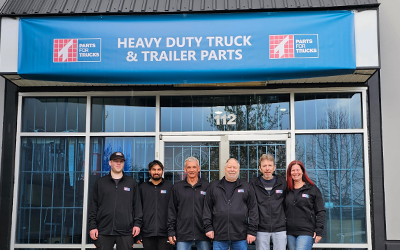A Charged Topic: The Relationship Between Alternators and Batteries
By: Megan B

Picture this: you’re getting into your car, ready to begin your drive, and put your key in the ignition to turn on your car. But when your turn the key, your car doesn’t start.
It’s a place where many of us have been. And when that happens, many of us have the same first thought: it’s the battery. And that could be the issue, but there’s another culprit that’s just as likely: the alternator.
That’s because your battery and alternator go together like peanut butter and jam, keeping the electricity flowing properly in your car to keep it running smoothly.
The basics of your vehicle’s electrical system consist of three main components: the battery, the starter, and the alternator. When you put your key in the ignition and turn on your vehicle, the battery (which stores electricity) supplies the initial power to the starter motor and begins the mechanical process of getting the engine’s pistons moving.
Once the engine is running, the alternator takes over for the battery. It takes the mechanical energy created by the engine and converts it to electrical energy. This energy is used to provide electricity for your vehicle, and keeps the battery charged so it can be ready to provide that initial boost when you start your vehicle next time.
So, how do you know if an issue is caused by your alternator or your battery?
Because they are two components of a tight-knit system, it can be difficult to tell which is to blame when you start experiencing electrical issues, but there are some telltale signs to look for.
First, check your dashboard. If there’s the engine light is on, it might be your battery. But if the battery light is on, then it could be either.
Second, go check under the hood. If there is evidence of the battery swelling, corrosion built up on the terminals, or even a sulfur-like smell coming from the battery, that’s a dead giveaway that it’s time for a replacement.
But the most obvious clues that you want to look for are how it starts, and how it idles.
Some of you clever readers might have already guessed that because the battery is responsible for supplying the initial power required to start your vehicle, any trouble associated with starting – clicking sounds, slow cranking – points toward your battery as the culprit. Likewise, because your alternator is responsible for keeping your electrical system humming along during operation, any issues there would be a sign that it’s on the fritz. This would include a rough idle, headlights not at the correct brightness level, car accessories (such as windows, radio, etc.) operating slowly or not at all, or any sounds coming from under your hood.
Either way, it’s good to have a general sense of where the issue is coming from, but when it comes to your electrical system – especially as we approach the colder months – you don’t want to play around. If you’re experiencing any of these issues, call to book in today at your local Parts for Trucks service location and team of experts will repair your rig to make sure you can drive with confidence in your electrical system.
Belts Don’t Last Forever
Proactive belt inspections prevent downtime. Choose the right fan belt for seamless, reliable vehicle performance.
Parts for Trucks Inc. announces acquisition of Trailine Trailer Parts in Surrey, BC.
Hey Vancouver (well Surrey technically), meet Parts for Trucks!
Mistakes EVERYONE Makes when Putting Away their Fisher Equipment for the Summer
If you’re tired of dealing with rusted components or damaged belts when you take out your plow after a long summer of storage, this video is for you. Don’t make the same mistakes as everyone else.





